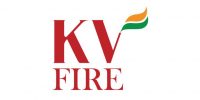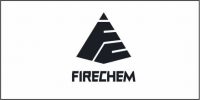 Ensuring the safety of guests is a fundamental requirement for all hotel operators. Apart from the obvious threat to the lives of hotel guests and staff, fire can cause damage that risks the brand values of the hotel and destruction of the building caused by even the smallest fire. The harm to the hotel's reputation might be even greater and take longer to repair.
Ensuring the safety of guests is a fundamental requirement for all hotel operators. Apart from the obvious threat to the lives of hotel guests and staff, fire can cause damage that risks the brand values of the hotel and destruction of the building caused by even the smallest fire. The harm to the hotel's reputation might be even greater and take longer to repair.
The installation of an inadequate fire system might well bring the unwelcome nuisance of false alarms. The disruption when alarm sounders ring unnecessarily or when full-scale evacuations are wrongly undertaken can have a lasting and damaging effect on any hotel's business. So, hotel operators need the assurance that the hotel is safe and well protected through the implementation of a reliable, integrated fire protection system that offers the earliest dependable detection, along with timely evacuation concepts and clearly defined escape routes.
Fire Statistics for Hotels & Motels
Statistics show that perhaps fire safety needs to be given greater priority by some hotel owners. An average of one in every 12 hotels in the US reported a fire every year and an estimated average of 3,700 structure fires in hotels and motels is reported annually, resulting in yearly loss of 12 lives and injury to 143 people. 12 percent of fires are said to have begun within guests' rooms, accounting for 72 percent of the deaths of guests and staff. Smoking materials have been found to be the cause of fire in 79 percent of these deaths. In the USA alone, the cost of damage to hotel property averages around US$127 million every year.
A Safe & Pleasant Stay
Fire prevention in any hotel should involve ensuring the installation of adequate fire detection systems in guests' rooms, public and 'back-of-house' areas, as well as implementing safe working practices in high-risk areas such as the kitchen. According to statistics, cooking equipment is involved in nearly 45 percent of all fires. However, guests need to know that they will enjoy their stay, and this includes the guarantee of a good night's sleep without interruption by a 'false' fire alarm. False alarms are disruptive and irritating but, more importantly, they undermine the credibility of any genuine alarm. Any detection system needs to be accurate, reliable and 'intelligent'; capable of detecting the earliest stages of a smouldering fire. It must also be capable of differentiating steam from smoke and other deceptive phenomena.
The protection of guests' assets and valuables is important too, and this includes their motor vehicle. Therefore, hotel car parks should be covered by any fire protection system. Car park fires are capable of generating temperatures sufficiently intense to cause damage to even reinforced concrete structures. They should also be fitted with systems to detect, alarm and deal effectively with the build-up of carbon monoxide to protect guests from high concentrations of the gas.
Fire Safety in Corporate Chains
Some operators find themselves faced with a dilemma, if they have limited capital to invest; spend more on protecting customers or make their hotel more appealing by investing in attractions and customer services? Or should they minimise expenditure to sustain competitiveness and maximise profits? This sometimes leads to the investment in fire safety standards to meet only the basic requirements of the relevant national legislation. Yet others rely heavily on the continued support of their corporate customers whose expectations are very much on the rise. As a result, many travel managers now insist on the highest safety standards, with 25 percent refusing to book rooms that do not have the highest standards of fire protection.
Global brands operating across multiple geographical locations face even bigger problems when dealing with fire safety. In different countries the implementation, use and maintenance of fire protection solutions will be stipulated by many different regulatory authorities. Simply keeping abreast of all the legislative advances of the different bodies, along with the constantly changing technologies, makes simple adherence to the appropriate standards difficult. The first challenge for international operators is to instigate sufficiently high corporate standards regardless of the national regulatory differences. The second is to ensure the full implementation of these agreed standards widely and consistently across every hotel.
However, despite the differences in national laws and standards, the majority of global hotel chains have adopted corporate fire safety schemes based on automatic detection and alarm schemes. Although these may be configured differently or contain different component devices, they all offer significant benefits in terms of speed of detection, response and orderly evacuation.
The human Factor
One factor is common to all emergencies that is constant yet still unpredictable – human behaviour. With the sounding of a fire alarm, many people react with indifference. The ringing of an alarm bell siren is all too common and rarely demands the response of everybody who can hear it. Very often people ignore the alert, thinking it a test procedure or a 'false' alarm. Rarely is peoples' first reaction one of clear understanding, calmly followed by a rapid and appropriate response. Too frequently the reaction is one of surprised but ineffectual attention, as people look for some kind of clarification or confirmation that the alarm is genuine.
Hotel guests are usually in unfamiliar surroundings where, at best, they have only a rudimentary knowledge of the layout or even the location of the nearest emergency exits. Few will have acquainted themselves with procedures, escape routes or assembly points that the hotel will have put in place. Guests may also have differing degrees of mobility, sight and hearing abilities. Most alarms in hotels happen in the early hours of the morning – 23 percent of fires in guests' rooms occur between midnight and 2am – while people are asleep and initially disorientated when woken abruptly, so these factors are part of the challenge that fire safety engineers continually face.
Learning from Other Industries
Hotels will generally have organisational measures in place to deal with fire alarms. These will range from the simple nomination of fire officers among staff to the most detailed guidelines for any possible evacuation. However, personnel measures alone cannot be relied upon to address all the critical needs for a successful emergency evacuation.
The use of technology instead to overcome the 'human factor' in the fire safety challenge, has an increasing role to play. It is an area where the hotel industry can learn from other industries to ensure efficient incident management. In most airports and on most university campuses, there are invariably large numbers of people – sometimes scattered over large areas and throughout several locations in numerous buildings. However, before extinguishing, firefighting or other intervention activity can take place it is sometimes necessary to ensure that everybody has been successfully evacuated. The difficulties involved in securing a complete and successful evacuation in any of these situations include the need to ensure that everybody knows exactly what is going on and what to do, while receiving all relevant updates pertinent to their individual position, in order to do so.
Move from Simple Fire Detection Technology
One way that these other industries are tackling the issues is by putting in place solutions that enable response processes to be automated. It is becoming increasingly more common for fire detection systems to be integrated, not only with extinguishing systems but also emergency lighting, voice alarm and mass-notification systems as well as building management systems – to control smoke extraction, fire doors and lifts in the course of any potentially life-threatening event. Such integrated systems will automatically provide clear, step-by-step instructions for what to do, with whom to make contact, where to seek escape and where to assemble. All relevant alarm or lighting systems will be triggered automatically, so that every party involved knows exactly what to do next.
With regard to communicating with participants in an emergency, the focus is currently very much on mass-notification. By utilising the “connected” culture of today's mobile phone, messaging and Internet networks, it is possible to put plans in place to direct almost instantaneously as many people as possible to safety in any emergency. This means that the consequence of any outbreak of fire or any other incident can be minimised, not only in terms of injury or fatality, but also with regard
to commercial disruption, both short and long-term. This means that reputational damage can be minimised too.
Although this level of integration is not usual yet within the hotel and hospitality industry, the technologies in common use could be put to far wider – and more vital – use. The latest flat-screen digital TVs and wireless connectivity now common in many hotels around the world, could provide the facility to implement a more holistic approach to incident response. Both would increase the likelihood of guests and staff receiving relevant information and instructions concerning any fire or incident and would have the financial benefit of utilising existing equipment without incurring the cost of additional resources. By following the lead provided by others, making smarter investments and making better use of existing technologies, the hotel industry can integrate all its fire, safety and security disciplines to make better provision for its guests' care and comfort.
Intelligent Response for Best Protection
Today's integrated systems or solutions can prove even more invaluable. They are based on a rule-based approach, which determines the outcome based on information received from input devices such as fire detectors, intruder alarms and other systems. By adopting an approach whereby building technologies such as the heating, ventilation and air-conditioning systems, along with fire and intrusion detection and video surveillance are integrated on a common platform, different, pre-determined responses will be triggered by different events. They involve a variety of integrated detection and communication technologies that are able to interoperate and work seamlessly together to ensure that guests, regardless of their location can be contacted and guided swiftly and efficiently to a place of safety. They also facilitate the on-site communication of the emergency services to help the firefighting, rescue and medical teams contain the incident and limit its effects and repercussions.
The solutions provided by today's leading manufacturers offer the hotel industry: early and reliable detection of fire in order to protect lives and limit the damage to properties; flexible and optimal adaptation to any hotel's building structure; tailored solutions for every part of the hotel; fewer false alarms caused by deceptive phenomena such as cigarette smoke, steam, exhaust fumes, kitchen fumes and sparklers; orderly and efficient evacuation if ever necessary; with fast and efficient installation with no interruption of everyday operations.















































